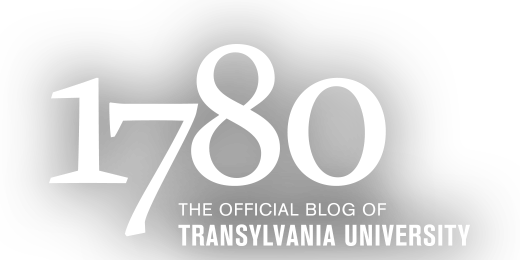Transylvania breaks ground for state-of-the-art athletics complex
Junior Abby Felthaus was one of several to participate in the groundbreaking. LEXINGTON, Ky.—Transylvania University broke ground today for a new athletics complex at 555 West Fourth Street that will become home to women’s and men’s soccer, lacrosse, and track and field teams as well as the field hockey team. The facility is expected to be ready for use in early fall of the 2013-14 academic year. Centerpiece of the complex will be a state-of-the-art lighted turf field for soccer, lacrosse, and field hockey, surrounded by an NCAA-regulation eight-lane track with an all-weather surface. Space for field events will be adjacent. An 800-seat grandstand, press box, and concession area will complete the playing facilities. A new office and locker room building will house coaches’ offices and a training room, and on-site parking will be available. “This project represents a bold approach to Transylvania’s future,” said Board of Trustees member Brian Wood, a 1994 graduate of the university. “By expanding beyond our traditional campus boundaries and integrating the Transylvania culture into a new neighborhood, we are setting a course that says we are a dynamic and innovative college.” Colmon Elridge, executive assistant to Governor Steve Beshear and a 2003 graduate of Transylvania, spoke on behalf of the governor’s office. “Transylvania University is enshrined in the fabric of who we are as Kentuckians,” he said. “And, this historic university is not resting on its laurels. Transylvania University is on the move.” President
Read “Transylvania breaks ground for state-of-the-art athletics complex”
